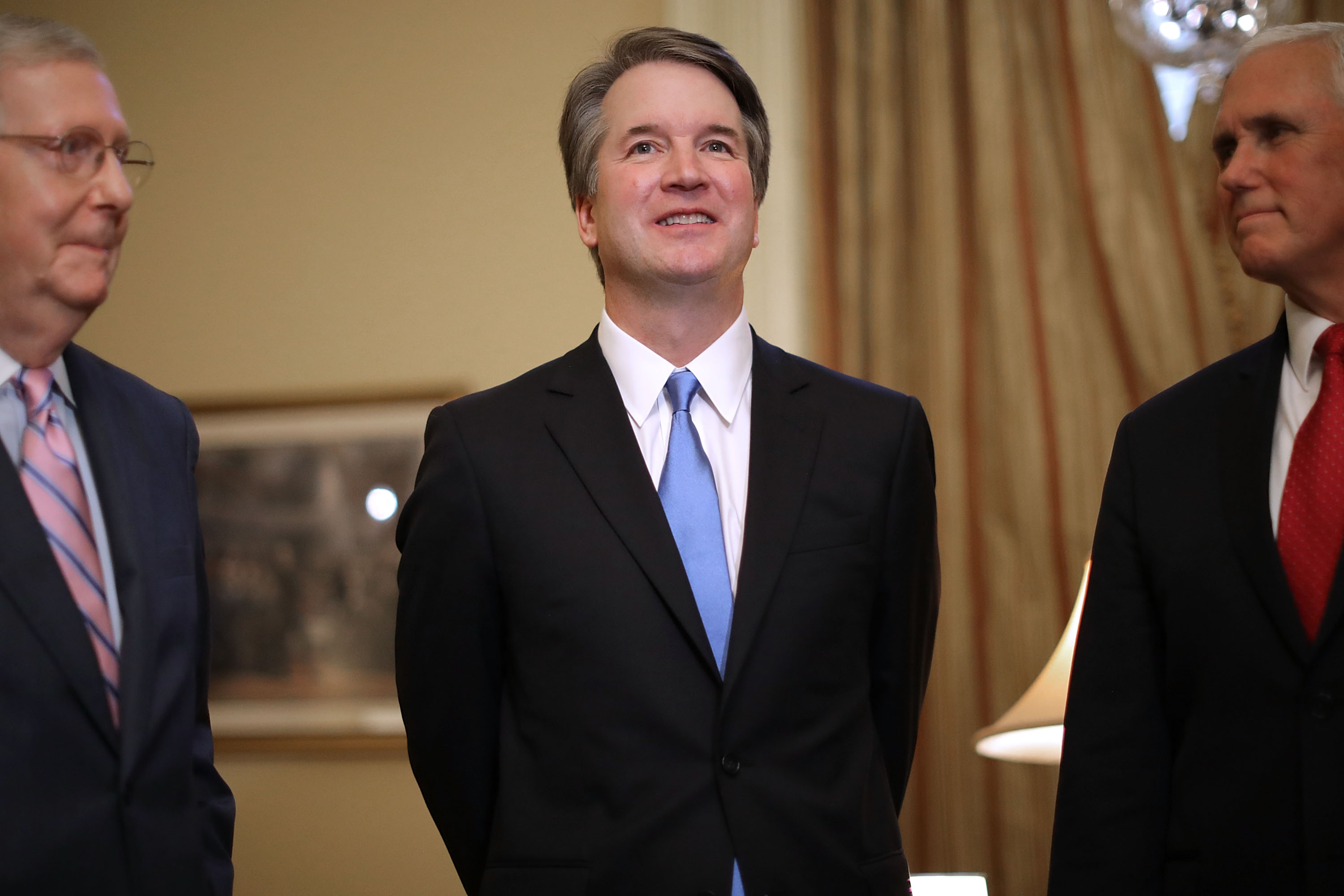Why on Earth is the GOP standing by Kavanaugh?
Finding another nominee wouldn't be difficult. So what gives?


A free daily email with the biggest news stories of the day – and the best features from TheWeek.com
You are now subscribed
Your newsletter sign-up was successful
The courageous decision by Christine Blasey Ford to go public with allegations that Supreme Court nominee Brett Kavanaugh sexually assaulted her when they were in high school has thrown his confirmation into turmoil. In response to objections from some Republican senators, most notably Jeff Flake (R-Ariz.) and Susan Collins (R-Maine), the Senate Judiciary Committee vote on Kavanaugh's nomination, which was scheduled for Thursday, was delayed so that both Ford and Kavanaugh can testify under oath next Monday. Still, President Trump and Senate Republicans seem inclined to push Kavanaugh's nomination through, which is a curious choice. The party would almost certainly be better off if Kavanaugh were replaced with another nominee.
So far Trump has offered fulsome praise for his embattled nominee. Senate Majority Leader Mitch McConnell (R-Ky.) sounded a similar tone, attacking Democrats for allegedly choos[ing] to reveal this allegation" at the "11th hour," suggesting that Ford's allegation was a dirty tactical ploy. We don't know what will be revealed in the hearings, but at this point, it is more likely than not that Republicans will stand by their man.
From a strictly rational perspective, this is a strange decision. Conservatives who thought Trump was unfit for office in 2016 faced a real dilemma: Once he secured the Republican nomination, stopping Trump meant electing Hillary Clinton, and hence would (from a conservative perspective) come at a substantial policy cost. That's not the case here; any candidate for the Supreme Court on the Federalist Society's 25-person shortlist would cast essentially similar votes to Kavanaugh. If Kavanaugh's nomination was withdrawn and he was replaced by an alternative like Amy Coney Barrett or Thomas Hardiman — reportedly the last potential nominees to be considered along with Kavanaugh — there is no reason to believe Republicans would pay a significant price in terms of the outcomes of Supreme Court cases.
The Week
Escape your echo chamber. Get the facts behind the news, plus analysis from multiple perspectives.

Sign up for The Week's Free Newsletters
From our morning news briefing to a weekly Good News Newsletter, get the best of The Week delivered directly to your inbox.
From our morning news briefing to a weekly Good News Newsletter, get the best of The Week delivered directly to your inbox.
So why not cut bait? Amber Phillips of The Washington Post has suggested that time could be an issue: An early October confirmation would give Republicans "a little more than a month to campaign on the success of firming up the court's 5-to-4 conservative majority," which would be "no small thing in an election year in which Republicans need to rev up their base to counteract an activated left." This is a questionable political calculation. Kavanaugh is already unusually unpopular for a Supreme Court nominee, and Ford's accusations are likely to make things worse. Campaigning on the importance of getting a new nominee without Kavanaugh's baggage confirmed could be a better option.
The more practical reason for Republicans to forge ahead with Kavanaugh is the possibility that they might not get someone else confirmed before the midterms, which would be disastrous if Democrats captured the Senate (which, according to FiveThirtyEight, has a propability of 1-in-3). But Republicans can almost certainly get a nominee confirmed before then. And even if they didn't, they could use the post-election lame duck session to confirm a nominee. This might be unusual practice, but then so was holding a Supreme Court seat vacant for well over a calendar year while refusing to give President Obama's nominee so much as a hearing. Republicans have very consistently put substantive priorities over procedural norms, and they would do what it takes to get a second Trump nominee confirmed.
So why not pursue this course? In addition to possible political miscalculation, there's the reality of negative polarization. Even if the ultimate policy results would be similar, Kavanaugh stepping aside would still be perceived by many Republicans as a "win" for Democrats. And Trump, to put it mildly, is not wont to concede error.
But there's another issue at play here. As Vox's Matt Yglesias observes, Trump has effectively made the entire Republican Party complicit in his corruption and misconduct. If being credibly accused of attempted sexual assault as a teenager is disqualifying for a Supreme Court seat, then what does that say about Trump's fitness to be president? He has, after all, been credibly accused himself of sexual assault, and openly boasted about his tendency to grope women. Congressional Republicans who have not merely accepted Trump as the leader of their party but actively shielded him from any accountability are going to have a hard time holding any Republican to any standard of behavior.
A free daily email with the biggest news stories of the day – and the best features from TheWeek.com
This doesn't mean Kavanaugh's confirmation is inevitable, but it explains why Republicans seem initially unwilling to back off, despite it probably being in their political interests to do so.
Scott Lemieux is a professor of political science at the College of Saint Rose in Albany, N.Y., with a focus on the Supreme Court and constitutional law. He is a frequent contributor to the American Prospect and blogs for Lawyers, Guns and Money.
